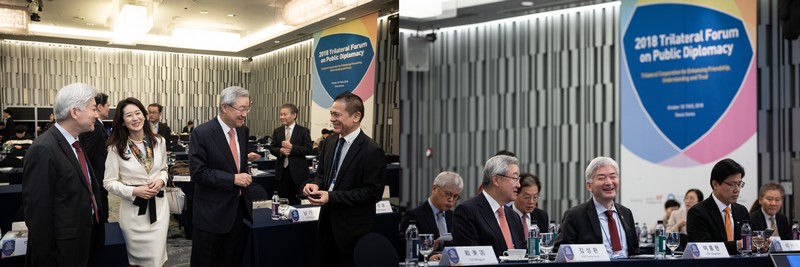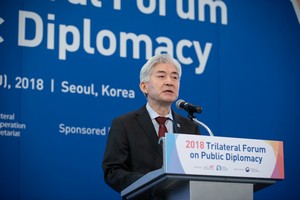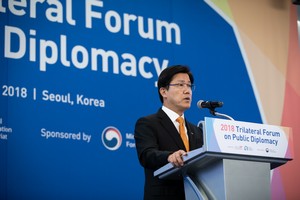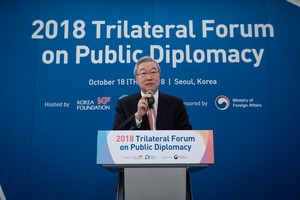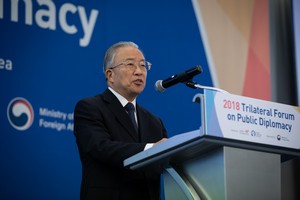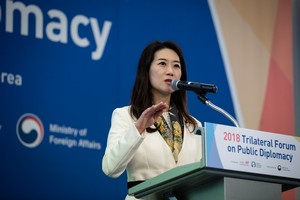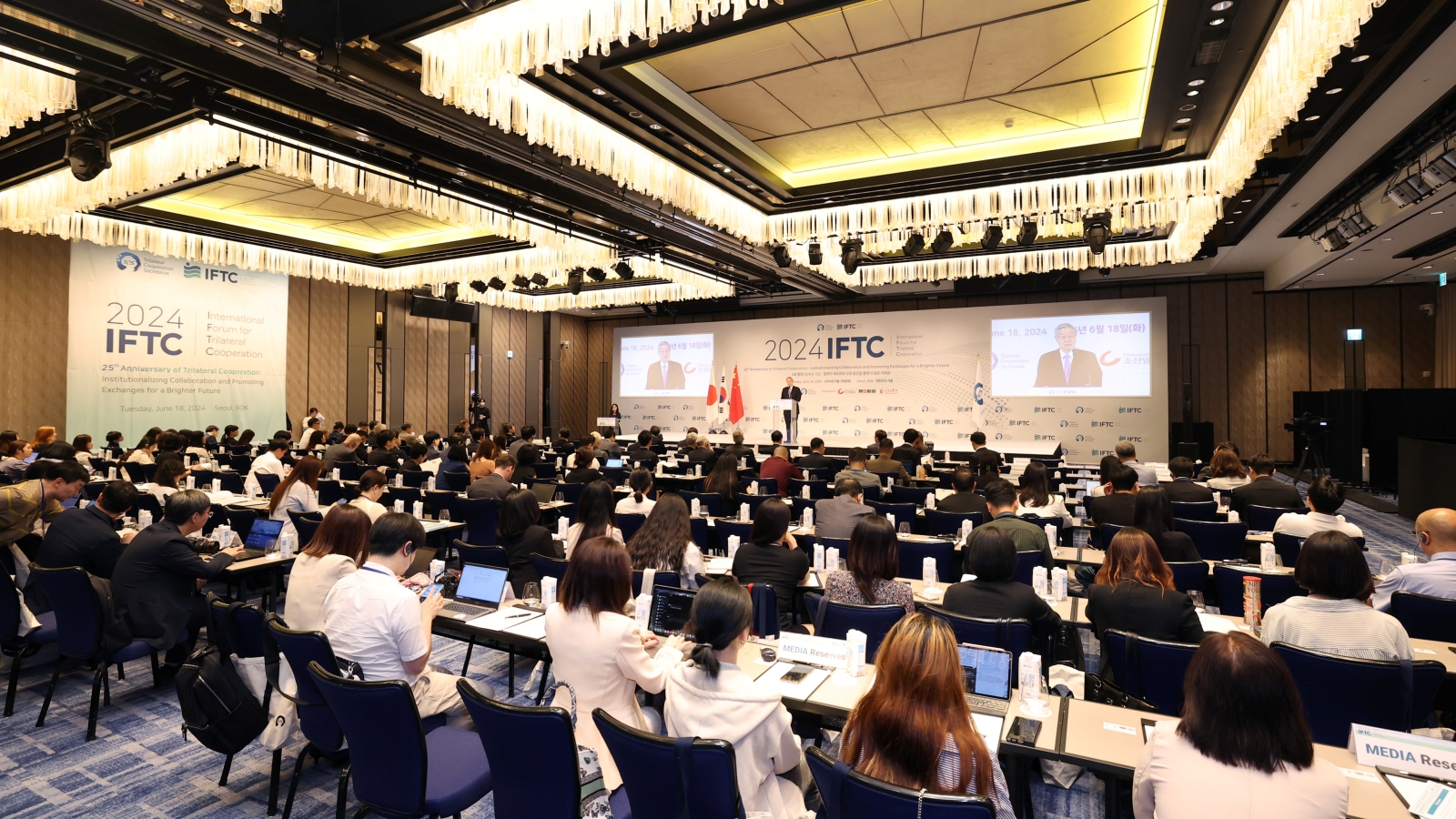City of Seoul has set the goal of a ‘Peace Capital of Northeast Asia’ as its urban diplomacy vision, and is making efforts to contribute to Northeast Asian peace, to tackle global urban problems, to implement urban diplomacy based on public-private partnership, and to lay the foundations of urban diplomacy. Seoul has grown into an already influential international city, through sharing excellent policies, hosting international organizations and granting ODA’s. The examples of Seoul’s urban diplomacy include: with Japan, the Korea-Japan Youth forum, Seoul Friendship Festival, mutual employees dispatch program between Seoul and Yokohama; with China, the establishment of a joint committee with the City of Beijing, Korea-China Governors’ Meetings, the China Day Event, Training and Masters Degree Program for Chinese Government Officials, and so on. Seoul also attempts to resume the building of the Major Northeast Asian Cities Caucus as part of its efforts for cooperation between the three states.
(Presentation 2: Japan) ANDO Hiroaki, General Manager, International Affairs, Kyushu Economic Federation
The main task of the economic internationalization promotion body of Kyushu is about the business related to Asian economy, with particular emphasis on the CJK Pan-Yellow Sea Economic and Technological Conference as the platform for sustaining inter-local economic exchanges between Korea, China and Japan. The Kyushu-Korea Economic Exchanges Council, as part of interchanges with Korea, has been held every year since 1993 with a variety of topics, the most recent of which involved the health care business. With China, a matching consultation fair for Shandong and Kyushu enterprises for food and agricultural products has been held, resulting in the MOU signings with the Commercial Department of the Shandong Province Government and the Peoples’ Government of the City of Weihai, with further strengthening of cooperation in mind.
(Presentation 3: China) HUANG Junhua, Director of the Research Office of Yangzhou Municipal Government
City of Yangzhou is proceeding with exchange projects with Korea and Japan, employing cultural celebrities as connection links. With Japan, using Great Master Gamjin, called the father of Risshu, as the connection instrument, it hosted an exhibition of his statue transported from Japan. With Korea, utilizing Choi Chiwon as the connecting medium, it built his historical materials museum in Yangzhou, which is the first memorial for foreigners ever permitted by the Ministry of Foreign Affairs of China. Further, major executives of Yangzhou have visited Korea and Japan for investment and tourism briefings, while delegates from the two countries have visited Yangzhou to participate in key events, e.g. tourism festivals.
(Discussion 1: China) SHI Youmei, Secretary General of the Jilin Trilateral Cooperation Studies Center
Cooperation between the three countries will play a positive role in the world economy, and provide more development opportunities to each country. For this purpose, the crossroad of culture and civilization should be discovered by initiating humanistic exchanges, and methods need to be sought for co-prosperity and for sustaining mutual understandings. We need to keep developing cooperation between the three countries by taking advantage of the wisdom of the ancient East Asian culture, to activate human exchanges, especially those between high-level persons, and to establish cooperation in humanistic academic exchanges.
(Discussion 2: Japan) ISHIKURA Shigeyuki, Director, Kanazawa City Hall, Culture and Sports Department, Olympic-related Business Promotion Office Kanazawa City
There are three key points to be considered in exchanges and cooperation projects. Implementing youth exchanges is the first point. The second point is that exchanges should expand to the civilian sector, from the inter-governmental one. Finally, we need to keep enlarging exchanges increasingly. The City of Kanazawa sees the cultural power as the key force in boosting the power of a city further. Entities like the Pan-Yellow Sea Economic and Technological Conference will grow into bigger cooperation and contribute to cultural development of East Asia in the future.
(Discussion 3: Korea) LEE Heeok, Professor of Political Science and Diplomacy Department at Sungkyunkwan University / Director of Sungkyun China Research Center
Seven principles can be considered in promoting friendship between peoples: openness, participation, sustainability, future-orientation, reciprocity, fusion and creativity. Diplomatic signals being so influential in civilian exchanges as the national domains (high politics) prevail, that it is important to hold national summits on a regular basis. It is also desired that the three countries – Korea, China and Japan – will keep writing in the pages of tripartite exchanges beyond the bilateral ones, by respectively designating the National Culture Year for a specific country.
3. Session 2: Methods to Enhance Dialogues in the Area of Journalism and New Media to Promote Mutual Understanding among the three countries
Participants in Session 2, which was chaired by NAM Ki Jeong, professor at Seoul National University, stated that the public opinions in each country are affected by inter-governmental outbreak of issues despite the heightened level of exchanges between the people of the three countries, and shared a common recognition that the role of journalism is essential in filling that gap. Opinions were suggested to make efforts to actively implement exchanges between the media of the three countries and to develop new platforms, for positive public opinions.
(Presentation 1: Japan) IDEISHI Tadashi, Executive Commentator of NHK
Whereas the public sentiment of Japan on the United States is being kept stable, quite a large portion of it goes against China and Korea. Meanwhile, the number of Korean and Chinese tourists visiting Japan has increased sharply. National sentiments do not seem to improve at once despite the exchanges increasing at a vigorous pace. Given that media plays an important role in determining national sentiments and opinions, the actual media reporting is bringing negative effects on the matters like mutual understanding. As a solution, it is necessary that we establish a border-transcending media and train talents, starting from now, for that purpose.
(Presentation 2: China)
XU Zhuangzhi, Deputy Managing Editor of the Xinhua All-Media Service
Friendly feelings toward people are ambiguous, and as there exist stereotyped preconceptions with one another between the peoples of the three countries, the media’s role is important and has strong influence in the improvement of mutual understanding between these peoples. In this regard, the media needs to increase reports about the countries concerned, to broaden the areas of reporting, to deepen inter-people understandings by enriching the content, to make use of common cultural backgrounds, and to pursue cooperation and exchanges in the area of new media.
(Presentation 3: Korea) NAMGUNG Changsung, Seoul Bureau Chief of the Gangwon Domin Ilbo
The media in the countries that take turns hosting the Olympic Games in Northeast Asia should perform public functions, in addition to the reporting of the Games per se, such as creating regional and national brand values and discovering heritage businesses. Examples of media exchanges among the three countries include: Forum of Renowned Journalists in the Korea-Japan-China Olympic Games, exchanges between the Visiting Group and journalists in the Zhangjiakou City of China, sharing of the process of reporting the Pyeongchang Winter Olympic Games, at the press headquarters on the opening day, by the Organizing Committees for the Tokyo and Beijing Olympic Games. It is necessary that touching stories are caught from the Olympic Games, mutual slandering on the cyber space is restrained, and the history, culture and traditions of the host country are to be briefed, to enhance understandings between the three countries in the future.
(Discussion 1: Korea) YOO Jeehye, Staff Writer of The Joongang Ilbo
It is recognized that friendly feelings of Japanese people toward Korea have been dropped amid issues with its offshore country, and vice versa for Korea. As likability is of ambiguous nature so is vulnerable to populist propagandas, it is media’s role to fill those perception gaps, and thus journalism exchanges between the three countries are suggested. It is necessary that cross-border media structures are created utilizing social media platforms, local internships for international students expanded, and support from the Tripartite Cooperation Secretariat and the Korea Foundation is important for that purpose.
(Discussion 2: China) ZHANG Hui, Director of Northeast Asian Center, China Radio International
In times of the fourth industrial revolution and new media, journalists need to be equipped with initiative-taking and proactive attitude. The three countries could find no reason not to magnify cooperation as they are neighboring within close physical and psychological distances, and they could play a significant role in the area of media cooperation by sharing with, and cooperating in, technology with their high level of development in science and technology.
(Discussion 3: Japan) HORIYAMA Akiko, Seoul Bureau Chief of The Mainichi Newspaper
Cooperation has been under way between the Mainichi Shimbun, the China Youth Daily and the Chosun Ilbo of Korea. Joint work of the three countries’ media generates confrontations resulting from a little difference in opinions and procedures, but ideas are born as well in the process. Meetings for prior planning and collaborative coverage of events should be our objectives in that direction, and inducing favorable public opinions. focusing on the areas where efforts are being made to bear friendship relations is necessary.
4. Session 3: Methods of Strengthening Trust Between the Future Generations of the Three Countries Through Enhancing Youth Exchanges and Cooperation
Participants in Session 3 chaired by HARA Masahiko, professor at Tokyo Institute of Technology, stressed the importance of youth exchanges in public diplomacy as childhood memories last for life, and agreed on the need for expanding youth exchanges, especially those between young people under higher education, for future-oriented interchanges.
(Presentation 1: China) ZHOU Xinyu, Deputy Director of Public Diplomacy Research Center at Beijing Foreign Studies University
Childhood memories and emotions affecting the rest of one’s life, youth exchanges are important as young people can identify commonalities and differences in communicating with diverse topics in addition to those on politics and economic issues, and they are highly open-minded to each other. But presently there are problems with exchanges like: small volume, low level, poor sustainability and difficulty in quantitative analyses of investment efficiency. To enlarge youth exchanges, exchanges need to be organized into subdivided groups and assistance to young people with lower education is necessary. For the young with higher education and beyond, assistance in spontaneous and professional exchanges is necessary, and exchanges fund for exchanges of public interests needs growth.
(Presentation 2: Korea) HONG Yurah, KDI School of Public Policy and Management
/ Participant in TCS Young Ambassador Program and the Trilateral Youth Summit
Taking part in the Youth Ambassador Program((YAP) and the Trilateral Youth Summit helped to know CJK friends, to ponder over the career plans anew reflecting newly-grasped facts, and to arrive at a deeper understanding of each country’s situations as an Asian. It will be good to propose a cyber space formation for the participants only since keeping in enduring contacts with each other is difficult.
(Presentation 3: Japan) NAGAI Koshiro, Consultant at P&E / Participant in the Campus Asia Program
The Campus Asia Program was meaningful in the lifetime portfolios, as it offers a great opportunity for Japanese people deriving from the development of Korea and China, and amusing in terms of being able to sympathize and understand each other. The exchanges, though, are heterogeneous and small in scale because political issues get in the way before exchanges properly take off. An individual person’s influence needs to grow to increase the influence of the Campus Asia, and alumni interchanges need to continue.
(Discussion 1: Japan) YAMAMITSU Eimi, Staff Writer of BuzzFeed Japan / Participant in the Campus Asia Program
The Campus Asia experience was a wonderful to help meet and discuss with the people having different ideas and viewpoints from mine. The participants were able to be equipped with an East Asian identity in the process. When the three countries exchange with one another, it is important that the exchanges are always made between contemporaries, the experiences and history taught from the seniors, and incessant thoughts of implementing actions advised to the next generations.
(Discussion 2: Korea) SUH Jaewon, Korea University / Participant in the Trilateral Youth Summit
Based on personal experiences in the Trilateral Youth Summit, a possibility of a chance to change the paradigm in mutual perceptions of relations in Northeast Asia comes in the participants’ generation. And for the development of the program, occasions for meetings between graduates need to be continuous, and the program should be solidified, institutionalized and made permanent.
(Discussion 3: China) ZHAO Xiyuan, Secretary General of the China Public Diplomacy Association
Being youth-and future-oriented is the key in the betterment of public diplomacy. Youth exchanges need to be implemented with programs impressions of which would last long, which will play a complementary and facilitating role in Track 1.0 exchanges between governments.
(Q&A)
The audience brought up the idea that, if the youth policies regarding public diplomacy should be organized into subdivided groups according to education levels, expanding the occasions of exchanges and operating more meaningful youth exchanges programs are necessary.
5. Closing Ceremony: BAHK Sahng-hoon, Ambassador for Public Diplomacy
Best practices in exchanges between local governments will grow in number, as evidenced by the example of a friendship Baduk (Go) competition between Yeosu City of Korea, Karatsu City of Japan and Yangzhou City of China. Media’s responsibility is vital as well, given the absolute dependence of most people on the news provided by newspapers and broadcasters, and its influence should be directed to increasing mutual friendship and deepen understandings among the peoples of the three nations. The promotion of mutual friendship and understandings between the youths of the three countries is also a significant factor.


